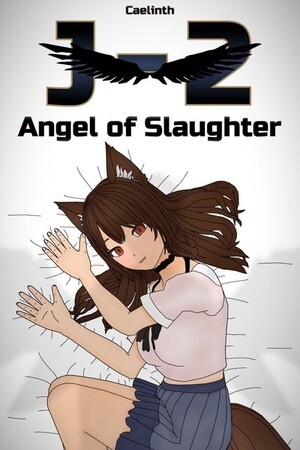Chapter 19:
Smoke and Blood
Immigrant Diaries
The streets of Kuala Lumpur never slept, but tonight, they seemed more restless than usual. Neon lights reflected off rain-slicked asphalt, and the air was thick with exhaust fumes, cigarette smoke, and something else—tension. I could feel it pressing down on me like the weight of the humid night.
I had been lying low since the job with Rahim’s crew at the dockyard. Too much noise had been made, and when there’s too much noise in the underworld, people start hunting for the one who made it. The problem was… I wasn’t the one making the noise. Not all of it, anyway. But guilt had a way of sticking to you like grease—you couldn’t scrub it off, even if it wasn’t yours.
Tonight wasn’t supposed to be about trouble. Rahim had called me, said he wanted to “talk business.” We agreed to meet at a teahouse near the outskirts—a quiet spot, the kind where gang leaders whispered instead of shouted, and where you could hear the click of a gun under the table if someone got ideas.
I arrived early, took a seat near the back, my eyes on the door. The tea came strong and bitter, the way I liked it. I sipped slowly, scanning every movement, every shadow.
Rahim walked in ten minutes later, flanked by two of his men—both built like refrigerators with tattoos curling up their necks. He gave me a thin smile, slid into the chair opposite mine, and leaned in.
Rahim: “Arman… or should I call you Ashique?”
My hand froze on the cup. “Names are dangerous things,” I said evenly.
Rahim: “So is running from them.”
His eyes glittered in the dim light.
Me: “You didn’t bring me here to talk about names.”
Rahim: “No. I brought you here because someone’s talking about you. Loudly.”
I didn’t like where this was going.
Rahim: “Word is, Kamal’s boys have been sniffing around the city. Looking for a Bangladeshi with a fake ID. They’ve been paying people—good money—for leads.”
Kamal. That name felt like a rusty knife in my gut. The man who’d framed me, made me a fugitive, and nearly got me killed a dozen times over. If he was sending men here, it meant my window of safety had just slammed shut.
Me: “You think I led them here?”
Rahim: “No. But they think you know something. And that means… you’re trouble. Trouble attracts bullets. And bullets? They don’t care whose head they find.”
I leaned back, letting his words sink in. This wasn’t just a warning—it was an ultimatum.
Me: “So what do you want from me?”
Rahim: “I want you to make this problem go away. Permanently.”
His meaning was clear. He wanted me to kill Kamal’s men before they killed me.
We left the teahouse an hour later with a plan. Kamal’s men were holed up in a cheap motel near Chow Kit. They weren’t subtle—probably thought Malaysia was too far from Dhaka for anyone to come after them. Rahim had intel that they would be meeting a local fixer tomorrow to discuss “business.” That gave us less than a night to prepare.
By midnight, I was in a dimly lit warehouse with Rahim’s crew. We went over floor plans, routes, and escape options. I kept my hands busy checking weapons—an old habit from days I wished I could forget.
Rahim: “Remember, this isn’t a war. We’re in, we’re out. Quick and quiet.”
I smirked. “You’ve seen how my life works. Quick, maybe. Quiet? Not so much.”
The rain started around 3 a.m., drumming against the corrugated roof as we slipped into the night. Chow Kit was a maze of narrow alleys and half-lit streets, the kind of place where shadows had shadows.
We reached the motel without incident. From across the street, I could see their room—the curtains drawn, faint cigarette glow flickering now and then.
Rahim (whispering): “Two inside, one on watch in the hallway. We take the watcher first.”
The hallway reeked of mildew and stale beer. The guard leaned against the wall, scrolling through his phone. He didn’t even see me coming until my hand clamped over his mouth and my blade kissed his throat. I felt the shudder go through him before I lowered him to the ground, silent and still.
We moved in.
The door gave way with a single hard kick. Inside, chaos erupted. One man went for a gun, but Rahim’s silencer spat twice, dropping him before he could fire. The second man lunged at me, and we crashed into a flimsy table, sending splinters flying.
He was strong—too strong. His hands locked around my throat, squeezing. Spots danced in my vision, but my right hand found the edge of a broken chair leg, and I drove it into his ribs. He gasped, grip loosening just enough for me to twist free. Two seconds later, he was face down on the floor, not moving.
Silence. Then the sound of rain again, tapping the glass like it had been waiting.
We found what we came for in a duffel bag—guns, passports, cash. And one more thing: a photograph.
It was me. Or rather, it was Arman Azin—my fake identity. Someone had taken the picture recently. The message was clear: they were close.
Rahim looked at me. “This doesn’t end here. If Kamal sent them, he’ll send more.”
I nodded, slipping the photograph into my pocket. My hands were still shaking, but not from fear. From anger.
We slipped out the back, but the night wasn’t done with us. Halfway down the alley, a flash of movement caught my eye—then the crack of a gunshot split the air.
Rahim’s man went down instantly, blood spreading across his shirt. We ducked behind trash bins as more shots rang out.
Rahim: “We’re pinned!”
Me: “Not for long.”
I grabbed a loose brick and hurled it toward the shooter’s position. The clatter bought me two seconds—enough to break cover and fire. My bullet found its mark.
When we finally made it to the getaway car, rainwater was running pink in the gutters.
Back at the warehouse, Rahim poured us both a drink. Neither of us said much. The room smelled of wet clothes and gunpowder.
Rahim: “You’ve just declared war, Arman. Kamal won’t forgive this.”
I stared into my glass. “Good. I’m done running.”
The words surprised me, but as soon as I said them, I knew they were true.
Later, when I was alone, I pulled the photograph from my pocket. Someone had scrawled two words on the back in black ink:
“Next time.”
I didn’t sleep that night.




Please sign in to leave a comment.